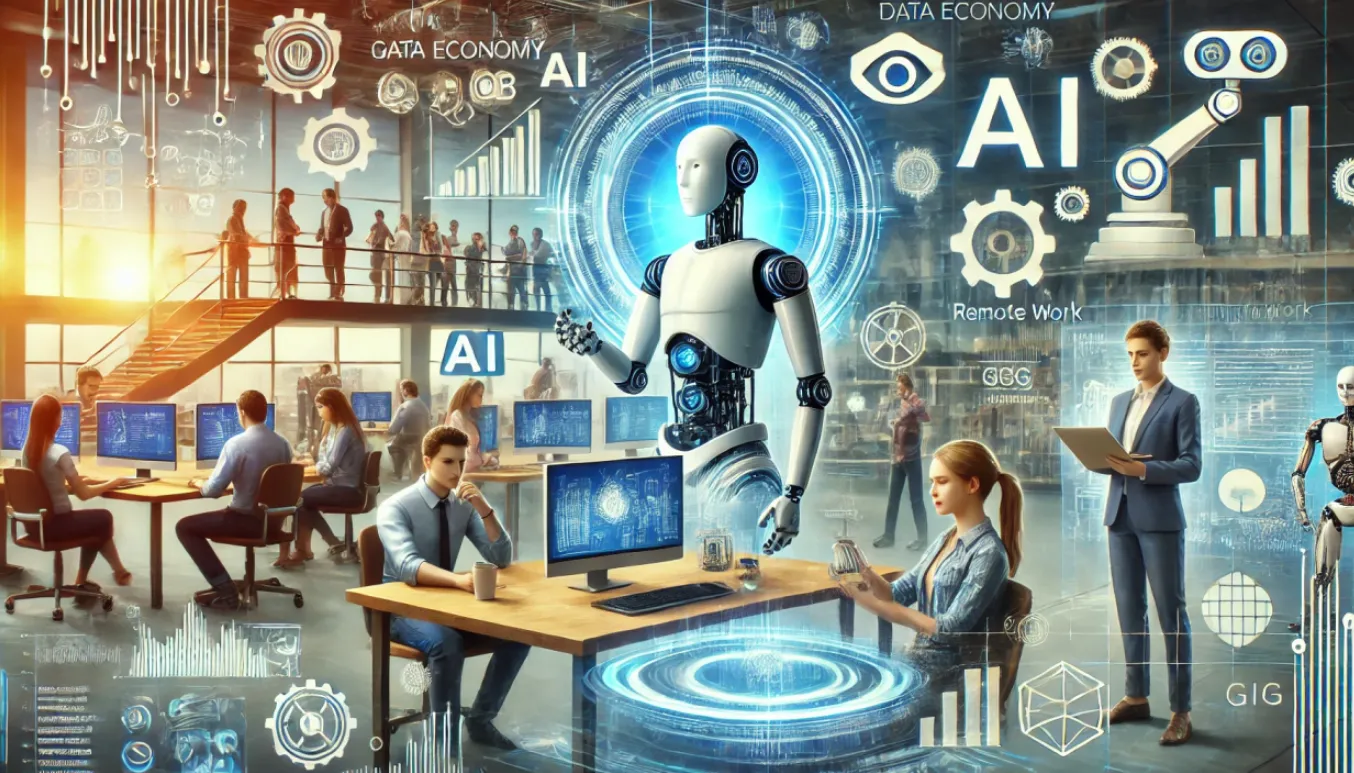Technology has always played a role in shaping jobs. But artificial intelligence is speeding up those changes. It’s not just about new machines or software — it’s about how work itself is evolving. Whether you work in an office, a factory, or from home, chances are your job will be affected in some way.
For many people, income is already coming from a mix of sources. Gig work, side projects, and digital platforms are becoming common. Some are even exploring gambling as a form of entertainment or income, often through this website, where you can read more about how digital tools can become channels of income – or risk. These examples show how money and technology are more connected than ever.
Jobs That Are Being Replaced
The first big shift is in automation. Computers can now do tasks that used to require people. Jobs that involve data entry, scheduling, or processing forms are being done by software. In factories and warehouses, machines are handling more of the physical work.
This doesn’t always mean entire jobs disappear. Often, it means parts of a job are taken over. A manager might still be needed, but they rely more on data dashboards and algorithms. A customer service worker may still answer questions, but a chatbot handles the simple ones first.
New Jobs Are Also Being Created
Even as some jobs go away, others are popping up. Companies need people to build, maintain, and guide AI systems. These aren’t all technical roles. People are needed to label data, test systems, and make sure results are fair. Trainers, project leads, and ethics advisors are all part of the AI world.
Some people are also building their own businesses using AI tools. A single person can now run a small shop online, manage marketing, and talk to customers with help from automation. That kind of flexibility can be good — but it also comes with uncertainty.
What Happens to Wages?
This is where things get more complicated. For people with the right skills, AI can boost income. Engineers and data scientists are in high demand. But for others, wages may stay flat or even fall, especially in roles that are becoming easier to automate.
There’s also a growing gap between workers who understand how to work with AI and those who don’t. Learning how to use new tools is becoming a way to protect your income. People who ignore the changes may find fewer opportunities in the future.
What Skills Still Matter?
Not every valuable skill is technical. Yes, coding and data knowledge help — but so do communication, problem-solving, and being able to learn new systems quickly. Many jobs will still need people who can explain things clearly, make decisions, and understand context.
Flexibility is becoming one of the most important traits. As job roles shift, people who can move between industries, learn on the job, and pick up new tools will have an edge.
The Gig Economy and AI
More people are working freelance or part-time now. AI is playing a big role here too. Some platforms match workers to short-term jobs using algorithms. Others allow people to create and sell products or services online without a big team.
This kind of work can offer freedom, but it also means less job security. No paid time off, no benefits, and less predictability. If the platform changes its rules, your income can drop overnight.
People using these systems need to be extra careful — saving regularly, diversifying income, and staying up to date with the tools they use.
Looking Ahead
There’s no easy answer to what AI will do to jobs over the next 10 or 20 years. Some industries will shrink. Others will grow. What’s clear is that no one is completely immune from the effects.
For workers, the best move is to stay informed and stay flexible. Learn new tools when you can. Pay attention to how your industry is changing. Talk to others about what’s working for them. And don’t assume that the old career path — school, job, retirement — will look the same going forward.
Governments and companies also have a role to play. If workers are being displaced, there should be support for training and fair wages. If AI is helping businesses make more money, some of that gain should be shared.
Final Thoughts
AI is changing jobs — not just in theory, but in real, daily ways. Some roles are disappearing, others are evolving, and entirely new ones are being created. Your income will likely be affected by how you respond to these changes.
Being aware, staying adaptable, and thinking ahead are more important now than ever. AI is here to stay. How we prepare for it will decide who benefits — and who gets left behind.














